 W
WThe phrase "ash heap of history" literarily speaking refers to ghost towns or artifacts that have lost their relevance.
 W
WErkki Johan Bäckman is a Finnish political activist, author and legal sociologist. In Russia he is also considered a human rights activist. He has been active in relation to Russian citizens' child custody rights abroad, and is regularly interviewed by the Russian media as a child custody expert. Bäckman has contentious views about Estonia, Latvia and Ukraine, and has been declared persona non grata and denied entry into Estonia, and has been expelled from Moldova.
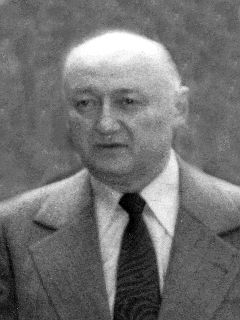 W
WBéla Biszku was a Hungarian communist politician, who served as Minister of the Interior from 1957 to 1961. He was charged of suspicion of committing war crimes during the suppression of the Hungarian Revolution of 1956, becoming the first and to date only former top-official in Hungary who has been prosecuted because of political role in the communist era.
 W
WBook burning is the deliberate destruction by fire of books or other written materials, usually carried out in a public context. The burning of books represents an element of censorship and usually proceeds from a cultural, religious, or political opposition to the materials in question.
 W
WBosnian genocide denial is an act of denying or asserting that the systematic Bosnian genocide against the Bosniak Muslim population of Bosnia and Herzegovina, as planned and perpetrated in line with official and academic narratives defined and expressed by part of the Serb intelligentsia and academia, political and military establishment, did not occur, or at least it did not occur in the manner or to the extent that has been established by the International Criminal Tribunal for the former Yugoslavia (ICTY) and the International Court of Justice (ICJ) through its proceedings and judgments, and described by subsequent comprehensive scholarship.
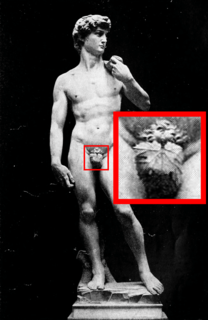 W
WCensorship is the suppression of speech, public communication, or other information, on the basis that such material is considered objectionable, harmful, sensitive, or "inconvenient." Censorship can be conducted by governments, private institutions, and other controlling bodies.
 W
WA closed city or closed town is a settlement where travel or residency restrictions are applied so that specific authorization is required to visit or remain overnight. Such places may be sensitive military establishments or secret research installations that require much more space or freedom than is available in a conventional military base. There may also be a wider variety of permanent residents - including close family members of workers or trusted traders who are not directly connected with clandestine purposes.
 W
WThe Croatian Wikipedia is the Croatian version of Wikipedia, the free encyclopedia, started on February 16, 2003. This version has 224,576 articles and a total of 5.7 million edits have been made. It has 248,112 registered user accounts, out of which 641 are active, and 17 administrators.
 W
WDamnatio memoriae is a modern Latin phrase meaning "condemnation of memory", indicating that a person is to be excluded from official accounts. There are and have been many routes to damnatio memoriae, including the destruction of depictions, the removal of names from inscriptions and documents, and even large-scale rewritings of history. The term can be applied to other instances of official scrubbing; the practice is seen as long ago as the aftermath of the reign of the Egyptian Pharaohs Akhenaten in the 13th century BC, and Hatshepsut in the 14th century BC.
 W
WDenial of the Holodomor is the claim that the 1932–1933 Holodomor, a large-scale man-made famine in Soviet Ukraine, did not occur or diminishing the scale and significance of the famine. Official Soviet propaganda denied the famine and suppressed information about it from its very beginning until the 1980s. It was also circulated by some Western journalists and intellectuals. It was echoed at the time of the famine by some prominent Western journalists, including The New York Times' Walter Duranty and Louis Fischer. The denial of the famine was a highly successful and well orchestrated disinformation campaign by the Soviet government. According to Robert Conquest, it was the first major instance in which Soviet authorities adopted the Big Lie propaganda technique in order to sway world opinion, and it was followed by similar campaigns with regard to the Moscow Trials and the denial of the existence of the Gulag labor camp system.
 W
WLibraries have been deliberately or accidentally destroyed or badly damaged. Sometimes a library is purposely destroyed as a form of cultural cleansing.
 W
WAleksandr Reshideovich Dyukov, is a Russian author and blogger. Dyukov is considered by critics to be a historical negationist downplaying Soviet repressions. He is persona non grata in Latvia, Lithuania and other Schengen memberstates.
 W
WFalsifiers of History was a book published by the Soviet Information Bureau, edited and partially re-written by Joseph Stalin, in response to documents made public in January 1948 regarding German–Soviet relations before and after the Molotov–Ribbentrop Pact.
 W
WThe Gesellschaft zur Rechtlichen und Humanitären Unterstützung (GRH) is a German historical revisionist organisation consisting of former employees of the East German secret police, the Stasi. It is led by the last Stasi chief, Wolfgang Schwanitz. In Germany the organisation is best known for its attempt to portray the Stasi in a positive light and for trivializing or denying the political repression in East Germany. It has become widely known in Germany for massively disturbing memorial ceremonies or other forms of public events relating to political repression in East Germany. It has also been accused of harassing victims of the East German regime, journalists, and politicians. GRH has been described by historian Hubertus Knabe, the Director of the Berlin-Hohenschönhausen Memorial, as an "aid association for state criminals."
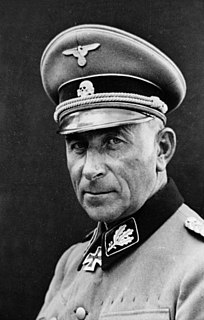 W
WPaul Hausser was a German general and then a high-ranking commander in the Waffen-SS who played a key role in the post-war efforts by former members of the Waffen-SS to achieve historical and legal rehabilitation.
 W
WJoel Hayward is a New Zealand-born British scholar, writer, and poet. The Nation referred to him as a "noted scholar" on international conflict and strategy. He is best known for his published books and articles on strategic and security matters, including the use of air power, his 2003 biography of Horatio Lord Nelson, his writing and teaching on the Quranic (Islamic) concepts of war, strategy and conflict, and his works of fiction and poetry.
 W
WHIAG was a lobby group and a denialist veterans' organisation founded by former high-ranking Waffen-SS personnel in West Germany in 1951. Its main objective was to achieve legal, economic and historical rehabilitation of the Waffen-SS.
 W
WHistoriography in North Macedonia is the methodology of historical studies used by the historians of that country. It has been developed since 1945 when SR Macedonia became part of Yugoslavia. According to Stefan Troebst it has preserved nearly the same agenda as the Marxist historiography from the times of the Socialist Federal Republic of Yugoslavia. The generation of Macedonian historians closely associated with the Yugoslav period who worked on the actual national myths of that time are still in charge of the institutions. In fact, in the field of historiography, Yugoslav communism and Macedonian nationalism are closely related. According to Ulf Brunnbauer, modern Macedonian historiography is highly politicized, because the Macedonian nation-building process is still in development. Diverging approaches are discouraged and people who express alternative views risk economic limitations, failure of academic career and stigmatization as "national traitors". Troebst wrote already in 1983 that historical research in the SR Macedonia was not a humanist, civilizing end in itself, but was about direct political action. No such case of reciprocal dependence of historiography and politics has been observed in modern Europe. Although ethnic Macedonians do not appear in primary sources before 1870, medieval history is extremely important for the traditions of modern Macedonian nationalism. Macedonian historians fabricated after 1960 the myth that Samuel of Bulgaria was Macedonian by nationality. Moreover, after 2010 a nation-building project was promoted to impose the deceptive idea that the Macedonian nation was the oldest on the Balkans, with an unbroken continuity from Antiquity to Modern times. Some domestic and foreign scholars have criticized this agenda of a denialist historiography, whose goal is to affirm the continuous existence of a separate Macedonian nation throughout history. This controversial worldview is ahistorical, as it projects modern ethnic distinctions into the past. Such an enhanced, ethnocentric reading of history contributes to the distortion of the Macedonian national identity and degrades history as an academic discipline. Under such historiographies generations of students were educated in pseudo-history.
 W
WHolocaust denial is the act of denying the Nazi genocide of Jews in the Holocaust. Holocaust deniers make one or more of the following false statements:Nazi Germany's Final Solution was aimed only at deporting Jews and did not include their extermination. Nazi authorities did not use extermination camps and gas chambers for the genocidal mass murder of Jews. The actual number of Jews murdered is significantly lower than the accepted figure of 5 to 6 million, typically around a tenth of that figure.
 W
WDavid John Cawdell Irving is an English author and Holocaust denier who has written on the military and political history of World War II, with a focus on Nazi Germany. His works include The Destruction of Dresden (1963), Hitler's War (1977), Churchill's War (1987) and Goebbels: Mastermind of the Third Reich (1996). In his works, he argued that Adolf Hitler did not know of the extermination of Jews, or, if he did, he opposed it. Though Irving's negationist claims and views of German war crimes in World War II were never taken seriously by mainstream historians, he was once recognised for his knowledge of Nazi Germany and his ability to unearth new historical documents.
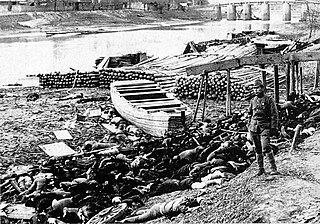 W
WWar crimes were committed by the Empire of Japan in many Asian-Pacific countries during the period of Japanese imperialism, primarily during the Second Sino-Japanese War and World War II. These incidents have been described as an "Asian Holocaust", but this characterisation has been challenged by scholars on the basis of unique features of the Holocaust. Some war crimes were committed by Japanese military personnel during the late 19th century, but most Japanese war crimes were committed during the first part of the Shōwa era, the name which was given to the reign of Emperor Hirohito.
 W
WThe Lost Cause of the Confederacy, or simply the Lost Cause, is an American pseudo-historical, negationist ideology that advocates the belief that the cause of the Confederate States during the American Civil War was a just and heroic one. This ideology has furthered the belief that slavery was just and moral, because it brought economic prosperity. The notion was used to perpetuate racism and racist power structures during the Jim Crow era in the American South. It emphasizes the supposed chivalric virtues of the antebellum South. It thus views the war as a struggle primarily waged to save the Southern way of life and to protect "states' rights", especially the right to secede from the Union. It casts that attempt as faced with "overwhelming Northern aggression". At the same time, it minimizes or completely denies the central role of slavery and white supremacy in the build-up to, and outbreak of, the war.
 W
WMa Lik, GBS, JP, was a Legislative Councillor, and was the Chairman of the Democratic Alliance for Betterment of Hong Kong (DAB), a pro-Beijing political party in Hong Kong.
 W
WMein Kampf is a 1925 autobiographical manifesto by Nazi Party leader Adolf Hitler. The work describes the process by which Hitler became antisemitic and outlines his political ideology and future plans for Germany. Volume 1 of Mein Kampf was published in 1925 and Volume 2 in 1926. The book was edited first by Emil Maurice, then by Hitler's deputy Rudolf Hess.
 W
WNewspeak is the fictional language of Oceania, a totalitarian superstate that is the setting of dystopian novel Nineteen Eighty-Four, by George Orwell. To meet the ideological requirements of English Socialism in Oceania, the ruling English Socialist Party (Ingsoc) created Newspeak, a controlled language of simplified grammar and restricted vocabulary designed to limit the individual's ability to think and articulate "subversive" concepts such as personal identity, self-expression and free will. Such concepts are criminalized as thoughtcrime since they contradict the prevailing Ingsoc orthodoxy.
 W
WNineteen Eighty-Four: A Novel, often published as 1984, is a dystopian social science fiction novel by English novelist George Orwell. It was published on 8 June 1949 by Secker & Warburg as Orwell's ninth and final book completed in his lifetime. Thematically, Nineteen Eighty-Four centres on the consequences of totalitarianism, mass surveillance, and repressive regimentation of persons and behaviours within society. Orwell, himself a democratic socialist, modelled the authoritarian government in the novel after Stalinist Russia. More broadly, the novel examines the role of truth and facts within politics and the ways in which they are manipulated.
 W
WA People's History of the United States is a 1980 nonfiction book by American historian and political scientist Howard Zinn. In the book, Zinn presented what he considered to be a different side of history from the more traditional "fundamental nationalist glorification of country". Zinn portrays a side of American history that can largely be seen as the exploitation and manipulation of the majority by rigged systems that hugely favor a small aggregate of elite rulers from across the orthodox political parties.
 W
WReport about Case Srebrenica was a controversial official report on the July 1995 Srebrenica massacre in eastern Bosnia and Herzegovina. It was prepared by Darko Trifunović and published by the Republika Srpska Government Bureau for Relations with the International Criminal Tribunal for the Former Yugoslavia (ICTY).
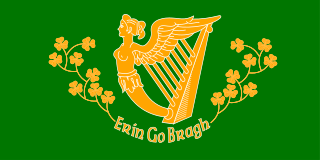 W
WThe Saint Patrick's Battalion was a unit of 175 to several hundred immigrants and expatriates of European descent who fought as part of the Mexican Army against the United States in the Mexican–American War of 1846–48. Formed and led by John Riley, the battalion's members included many who had deserted or defected from the United States Army. The battalion served as an artillery unit for much of the war. Despite later being formally designated as two infantry companies, it still retained artillery pieces throughout the conflict. In many ways, the battalion acted as the sole Mexican counterbalance to the recent U.S. innovation of horse artillery. The San Patricios were responsible for the toughest battles encountered by the United States in its invasion of Mexico, with Ulysses S. Grant remarking that "Churubusco proved to be about the severest battle fought in the valley of Mexico".
 W
WSelective omission is a memory bias. In collective memory, it is a bias where a group works to forget traumatic memories.
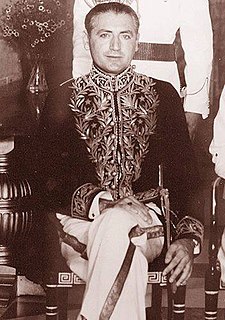 W
WMiguel Joaquín Diego del Carmen Serrano Fernández, better known as Miguel Serrano, was a Chilean diplomat, writer, occultist, and fascist activist. A Nazi sympathiser in the late 1930s and early 1940s, he later became a prominent figure in the neo-Nazi movement as an exponent of Esoteric Hitlerism.
 W
WThe stab-in-the-back myth was an antisemitic conspiracy theory, widely believed and promulgated in right-wing circles in Germany after 1918. The belief was that the German Army did not lose World War I on the battlefield but was instead betrayed by the civilians on the home front, especially Jews and the republicans who overthrew the Hohenzollern monarchy in the German Revolution of 1918–19. Advocates denounced the German government leaders who signed the Armistice on November 11, 1918 as the "November criminals".
 W
WThe Streisand effect is a social phenomenon that occurs when an attempt to hide, remove, or censor information has the unintended consequence of further publicizing that information, often via the Internet. It is named after American entertainer Barbra Streisand, whose attempt to suppress the California Coastal Records Project's photograph of her residence in Malibu, California, taken to document California coastal erosion, inadvertently drew further attention to it in 2003.